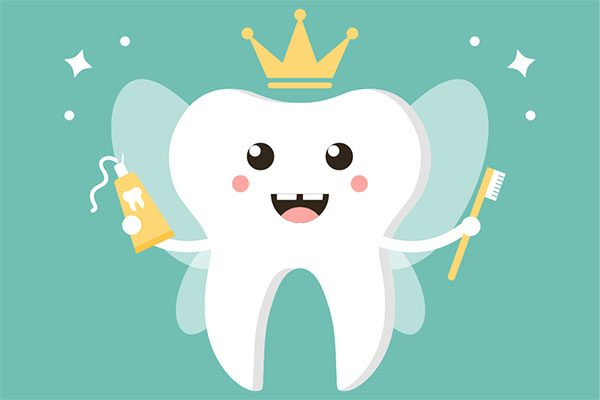A Pediatric Dentist Shares About What You Should Know About Baby Teeth and Permanent Teeth
 Pediatric dentists want you to know how important baby teeth are. Pediatric dentists often do not see a child at the dentist’s office until your child already has a problem. The health of baby teeth in children has a direct impact on the health of permanent teeth. Your dentist can be a great partner in caring for your child’s baby and permanent teeth.
Pediatric dentists want you to know how important baby teeth are. Pediatric dentists often do not see a child at the dentist’s office until your child already has a problem. The health of baby teeth in children has a direct impact on the health of permanent teeth. Your dentist can be a great partner in caring for your child’s baby and permanent teeth.
Baby teeth and tooth decay
The enamel of baby teeth is thinner than the enamel of permanent teeth. This means that tooth decay can happen quickly. Pediatric dentists recommend that parents begin to clean baby teeth as soon as the first teeth appear. This can be around six months of age. Dentists also recommend parents schedule the first dental appointment before the child turns one year of age.
Tooth decay in baby teeth can cause several issues. Teeth may fall out, or a pediatric dentist may have to extract them. Early tooth loss can affect speech and language. Cavities can be painful for children and may affect their ability to eat. Severe cases can affect the health of the entire mouth. Taking care of baby teeth has a direct impact on the health of the permanent teeth that will erupt later.
The role of baby teeth
Many parents think that baby teeth are not very important since baby teeth fall out during childhood by design. Pediatric dentists disagree strongly with this sentiment. Practicing healthy oral hygiene habits should begin when the first baby teeth appear around six months of age. Baby teeth serve several important functions.
As baby teeth come in, children can chew and grind with baby teeth. Even just a few teeth can help babies to tear and chew food. Growing toddlers and small children need the nutrients from foods that require chewing. Losing baby teeth early due to decay can make chewing foods more difficult. Children could also experience more pain and soreness because of cavities and tooth decay.
Baby teeth are much smaller than permanent teeth. Often baby teeth have large gaps between them. This is normal, and these teeth still serve an important function. Pediatric dentists want parents to know that baby teeth hold space for permanent teeth. If baby teeth fall out or a dentist extracts them because of decay, the permanent teeth underneath may erupt out of alignment. This can affect the other permanent teeth that surround the misaligned tooth.
What to expect at the pediatric dentist’s office
Your pediatric dentist can help you with any questions or concerns about your child’s dental health. Your child can get a teeth cleaning and, in some cases, a protective fluoride varnish. Parents can work with dentists to learn and reinforce good oral hygiene habits like proper brushing and flossing. Learning these habits when your child is young helps to establish a good foundation of lifelong healthy habits. Regular visits to the pediatric dentist throughout childhood can help to identify any potential dental issues in the early stages.
Request an appointment or call Cedar Smiles Pediatric Dentistry at 512-808-5666 for an appointment in our Cedar Park office.
Related Posts
Plaque is one of the main concerns in pediatric dentistry. Pediatric dentists aim to prevent the accumulation of plaque on primary and permanent teeth. The absence of plaque leads to a healthy set of dentition. This then leads to a healthy body. If you want to find out how to keep plaque at bay, here…
Pediatric dentists need pediatric dentistry tools to examine and treat their young patients. A child’s mouth has a simple environment. Basic pediatric dentistry tools can help the dentist perform oral examinations. If you are going to bring your child to a dental exam for the first time, here are the pediatric dentistry tools to expect.This…
Pediatric dentists want you to know that your child can avoid the pain and discomfort of tooth decay with your help. Child tooth decay is preventable. Getting involved in a good oral hygiene routine is key to preventing childhood tooth decay. Pediatric dentists want to help you and your child develop those good habits from…
